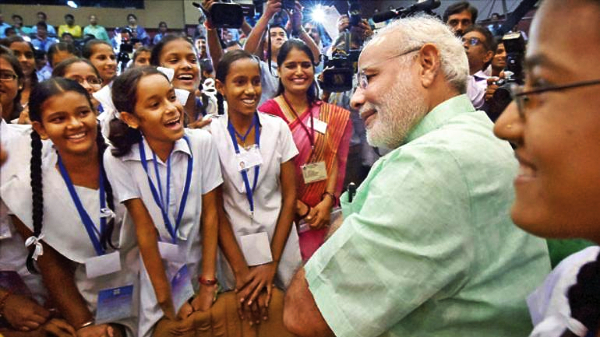In a positive development, The National Council of Educational Research Training (NCERT) is set to review the National Curriculum Framework (NCF). According to sources, the process to review the National Curriculum Framework (NCF), last published around 14 years ago in 2005 will start soon. The preliminary work has already begun and committee to undertake the task will also begin shortly.
“Society needs a change and our focus will, therefore, be on experiential learning. This will further take forward the shift of focus of 15 years ago from teachers to the students to promote learning without a burden and to change the tendency to learning by rote,” Hrushikesh Senapaty, director of NCERT said.
“The work we have done on rationalisation of textbooks will form the basis of the review of the 2005 NCF,” said Senapaty.
In 2018 as part of their efforts towards rationalization of textbooks NCERT had received thousands of suggestions from various stakeholders.
“As part of the 2018 rationalisation of textbooks, 72,000 stakeholders , among them students, teachers, parents, intellectuals and members of civil society, gave us over one lakh suggestions,” Mr. Senapathy said, “These were critically analyzed and will form the foundation of the forthcoming deliberations on a fresh NCF. It will be a year long process.”
According to the sources, the exercise will be officially announced after the Lok Sabha elections result on May 23. NCF provides a framework for the creation of the school syllabi and the writing of textbooks while giving guidelines on teaching practices in India.
The educational curriculum in India has been a point of major controversies in the past. With many claiming that the previous NCFs have failed to remove the colonial shadow from both the education mechanism and education curriculum.
The transition of the British East India Company’s rule to the rule of the British crown further magnified the need to introduce a British inclined education system. This education system was used to create human resource required to aid British imperialistic rule over India. Different commissions were set up for this purpose.
T.B. Macaulay considered to be the forbearer of the western style of education had indicated towards the biases that still prevail in Indian Education System. “We must at present do our best to form a class who may be Interpreters between us and the millions whom we govern, -a class of persons Indian in Blood and color, but English in tastes, in opinions, in morals and in intellect. To that class we may leave it to refine the vernacular dialects of the country, to enrich those dialects with terms of science borrowed from the Western nomenclature, and to render them by degrees fit vehicles for conveying knowledge to the great mass of the population.”
First attempts to bring back the coherency in the Indian Education System were undertaken under the Atal Bihari Vajpayee government. In 2000/01, the National Council of Educational Research and Training (NCERT) issued a National Curriculum Framework for school education under the slogan of “Indianize, nationalize and spiritualize”. The framework called for the purging of all foreign elements from the curriculum in state schools. The new policy involved a massive textbook revision. The revisions were contested by a petition to the Supreme Court brought by three activists who argued that the NCERT had not followed the correct procedures of consultation with the states and that it had tried to introduce religious teaching, which is forbidden by the constitution. However, the Supreme Court rejected this petition. However, as soon as Congress took over after the 2004 general elections review of the 2001 NCF was ordered.
NCERT keeping up with the reforms is also planning to train around 42 lakh elementary school teachers by December 2019. As a part of pilot run in Tripura, NCERT had already trained 31,000 teachers over a period of three-four months. This much-awaited review is sure to bring India’s educational curriculum in line with the current global standards.
Source: RL
Image Courtesy:Right log
You may also like
-
New Heat-Based Approach To Cancer Treatment Can Reduce Chemotherapy Doses
-
Scientists Take A Major Step Towards Unification Of Classical & Quantum Gravity
-
India Graphene Engineering and Innovation Centre (IGEIC) Under the Vision of Viksit Bharat@2047 Launched
-
New High-Performance Gas Sensor can Monitor Low Level Nitrogen Oxides Pollution
-
Antidepressant Drug can be Repurposed for Treating Breast Cancer
